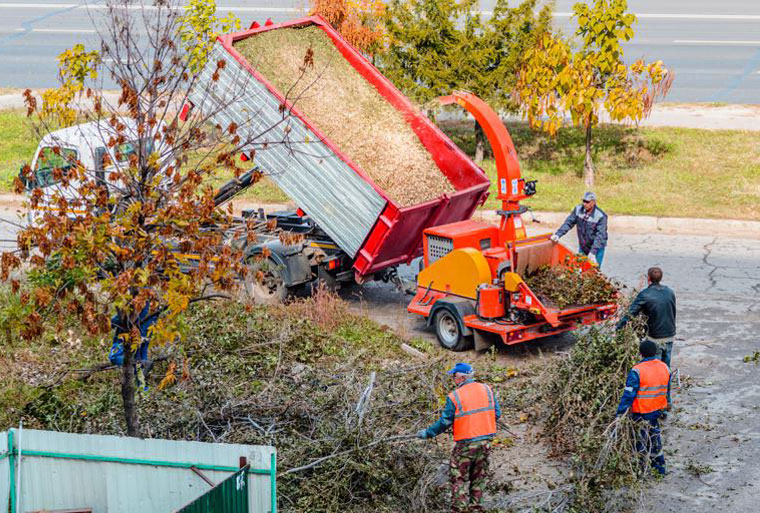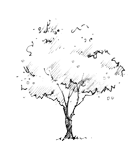The rules for tree pruning or removal in the Inner West have tightened over the years, and since Ashfield, Leichhardt and Marrickville councils merged.
Below is the quick version of what you can and can’t do, when you need approval, and how to get it done without racking up fines.

Table of contents
ToggleDo I need council approval to remove a tree?
In most cases – yes. If it’s a “prescribed tree” (meets any of these):
- Height: 4 metres or more
- Trunk: Over 150mm diameter at 1.4m above ground (DBH)
- Canopy: 2 metres or wider
- Palms/Tree Ferns: Clean stem 4 metres or more
…then you’ll need a permit or Development Application (DA).
No approval needed if it’s on the exempt list or falls under one of Council’s Control C6 exemptions (see below).
When you don’t need approval
Council gives the green light for certain works without a permit, as long as it’s done to Australian Standards (AS4373) and isn’t in a heritage area:
No approval needed for the following works:
- Canopy lift to 2.5m above ground
- Small branch prune (<100mm diameter, up to 10% of canopy per year)
- Remove deadwood with no habitat value
- Tree within 1 metre of your house
- Removal of any species on the Inner West Council exempt tree list
Important: Exemptions don’t apply if the tree is heritage listed, in a Heritage Conservation Area, or is protected habitat.
Inner West Council Exempt Tree List
| Scientific Name | Common Name |
|---|---|
| Acer negundo | Box Elder |
| Ailanthus altissima | Tree of Heaven |
| Alnus jorrullensis | Evergreen Alder |
| Bambusa spp., Phyllostachys spp. | Bamboo species |
| Cotoneaster spp. | Cotoneaster |
| Erythrina x sykesii | Coral Tree |
| Gleditsia triacanthos | Honey Locust |
| Lagunaria patersonia | Norfolk Island Hibiscus |
| Ligustrum lucidum | Broad Leaved Privet |
| Ligustrum sinense | Small Leaved Privet |
| Nerium oleander | Oleander |
| Robinia pseudoacacia | False Acacia / Black Locust |
| Salix spp. | Willows |
| Schefflera actinophylla | Umbrella Tree |
| Syagrus romanzoffianum | Cocos Palm |
| Tamarix aphylla | Athel Tree |
| Toxicodendron succedaneum | Rhus Tree |
Note: The Department of Primary Industries Priority Weeds List for the Greater Sydney (Inner West) area also applies — you can check the full weeds list on the NSW WeedWise website.
When a Tree Works Permit is required
You’ll need a Tree Works Permit if you want to:
- Prune more than 10% of a canopy
- Do tree root pruning
- Remove a prescribed tree that’s not covered by exemptions
Apply online via the Council’s website. Fees vary based on the job size.
Download: Tree works application form
When you need a Development Application (DA)
Skip the permit – go straight to a DA if the tree:
- Is on a heritage-listed property
- Is in a Heritage Conservation Area
- Is listed in the heritage register
- Has Aboriginal heritage significance
What Council looks at when you apply
Inner West Council weighs up:
- Safety risk
- Property damage risk (roots, structures, drains)
- Tree health & structure
- Species traits (limb drop risk, lifespan)
- Streetscape value
- Environmental/habitat value
Reasons that won’t fly
Council won’t approve removal just because of:
- Leaves, sap, fruit drop
- Minor root damage
- Blocking solar panels or views
- Shade issues
- Minor paving or driveway lift
How to get Council to approve your tree for removal
To get council approval for any tree for removal, you’ll need to play your cards right. There are a few good reasons you can use, if applicable, which will give you a much better chance of getting approval.
How to Apply
If you do in fact need council approval, you will need to submit an application form and pay a small fee. A Council arborist will then come out and inspect the tree before making their decision.
You can apply to prune or remove a tree in two ways:
Tree permit application (most cases)
Development application (If Heritage listed)
Can I prune a neighbours tree in the inner west?
Yes, you can prune a neighbour’s tree back to the boundary with their consent. You won’t need council approval for the prune if you are not trimming more than 2.5m above the ground, and the branch is smaller than 100mm in diameter.












